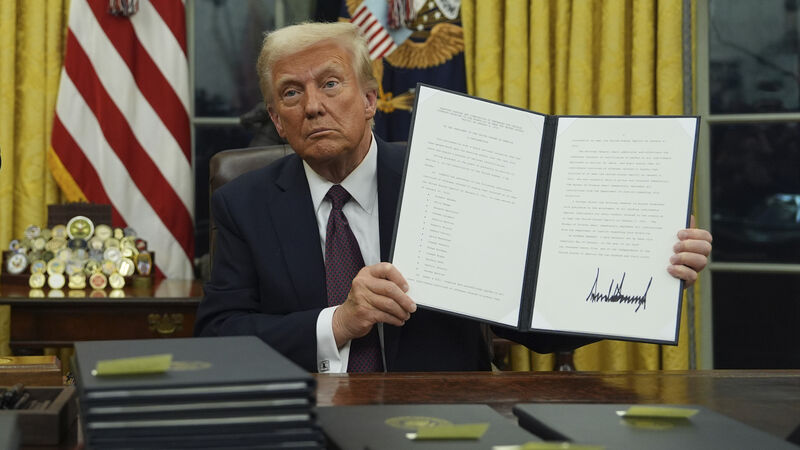Irish Examiner view: Freeing violent criminals is an unsettling omen for Trump presidency

On Monday, Donald Trump commuted the sentences for most people convicted of offences related to the violent attack on the US Capitol on January 6, 2021. Picture: Evan Vucci/AP
The aftershocks from Monday’s presidential inauguration in Washington continue to reverberate around the world.
A random example — say America’s withdrawal from the Paris Climate Agreement, or the WHO, would be sufficient to keep the commentariat busy for weeks on end at any other time, but we are living in a time apart. The challenge is rather to isolate the most important talking points arising from the Trump installation.













